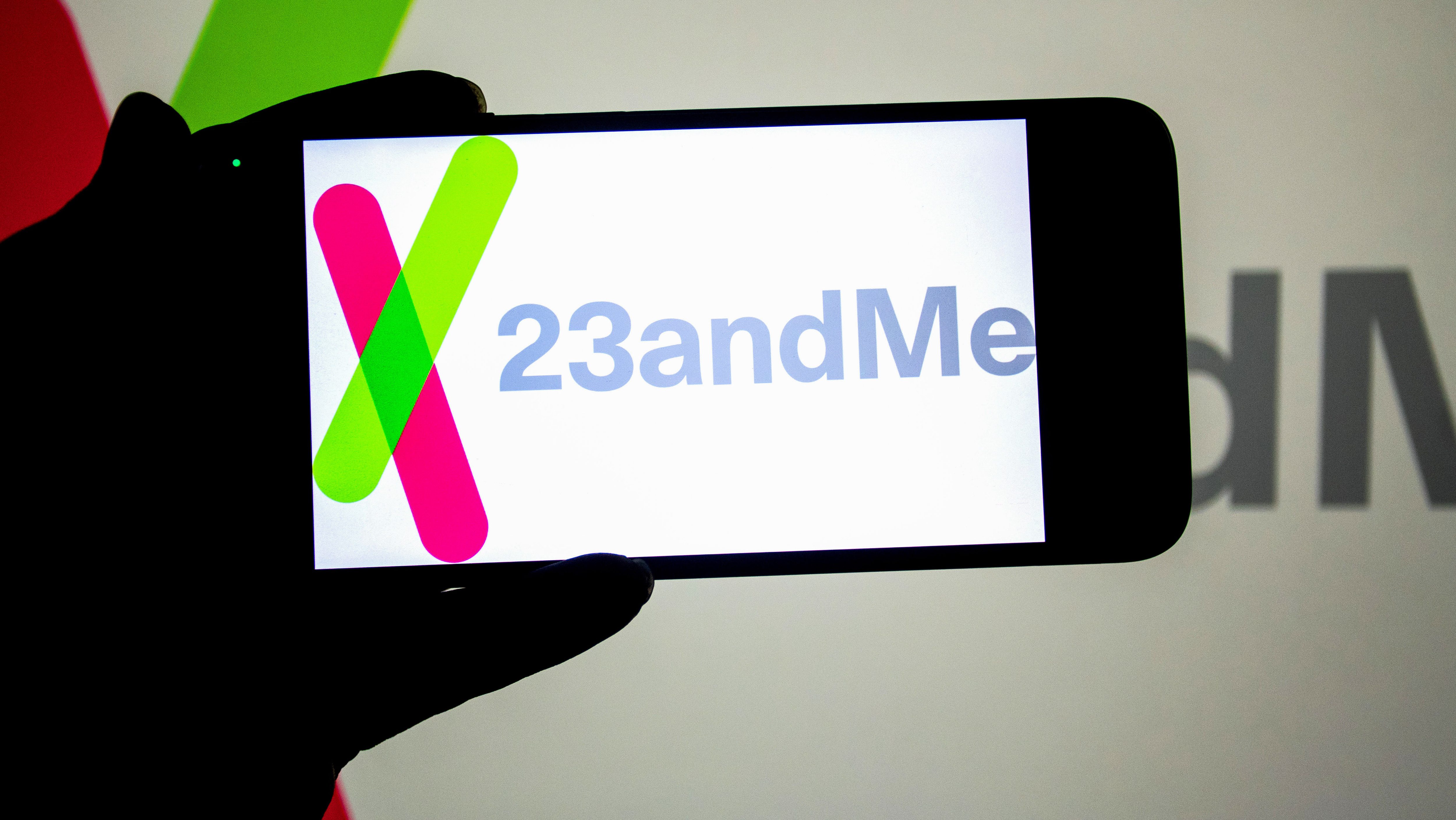23andMe Refund: Deadline & How to File Your Claim
23andMe Users, Listen Up! Potential Refunds Available – Act Fast!
Are You Entitled to a 23andMe Refund? Here's What You Need to Know
Have you ever submitted your DNA to 23andMe, hoping to unlock the secrets of your ancestry and health? Well, recent news might have you checking your inbox – and your bank account! It turns out some 23andMe users are eligible for compensation, following a recent announcement to customers. But time is of the essence, so let's dive into the details and see if you qualify.
This announcement, made on May 9th, comes shortly after the company's Chapter 11 bankruptcy filing on March 23rd. Now, before you panic, this isn't necessarily the end of 23andMe. Instead, it's a chance for certain users to potentially recoup some funds. According to the notice from the company’s claims agent, there are two distinct ways current and former 23andMe users can submit claims for money back. That's right, *two* chances! Keep reading to find out which applies to you.
The Clock is Ticking: Important Deadline Information
Pay close attention to this: the deadline for submitting *both* types of claims is July 14, 2025, at 11:59 p.m. Central Time if you submit electronically. If you prefer the old-school method and submit a hard copy, the deadline is 4:59 p.m. Central Time on the same day. Don't delay! Mark your calendars, set reminders, and get those claims in. Imagine missing out on potential compensation because you forgot the deadline. That would sting worse than finding out you're related to your nemesis!
Cybersecurity Claim: Were You Affected by the Data Breach?
Let's talk about the first avenue for submitting a claim: cybersecurity. Remember the data breach in October 2023? 23andMe revealed that hackers had accessed the data of nearly 7 million users, according to reports. That's a *lot* of sensitive information potentially exposed. If you were one of those affected, you might be eligible for a cybersecurity claim, officially called a "Cyber Security Incident Bar Date Package."
Qualifying for the Cybersecurity Claim: Check the Boxes
So, how do you know if you qualify? People are eligible to submit a cybersecurity claim if they meet certain criteria, which will be detailed in the official claims package. While we don't have the *exact* specifics yet (you'll need to consult the official documentation), generally, these qualifications relate to:
- Having your data compromised in the 2023 data breach.
- Being notified by 23andMe that your data was affected.
- Potentially experiencing damages as a result of the breach (e.g., identity theft, financial loss).
Think of it like this: if your digital house was broken into and your personal belongings were stolen, you'd likely have a right to seek compensation. The same principle applies here.
Beyond the Breach: Exploring Other Claim Opportunities
Now, let's explore the second avenue for potential compensation. While the initial announcement highlighted the cybersecurity claim, it's crucial to investigate what *other* types of claims might be available due to the Chapter 11 bankruptcy filing. This might include claims related to subscription services, research participation, or other agreements you had with 23andMe. We’ll need more details to be sure.
Understanding General Unsecured Claims
Bankruptcy proceedings often involve "general unsecured claims." This is a broad category that can encompass a variety of financial obligations the company owes to individuals or businesses. It's worth investigating whether your specific interaction with 23andMe qualifies for this type of claim. Imagine it as casting a wide net – you might catch something you didn't expect!
How to File Your Claim: Step-by-Step Guide (General)
While the exact process will be outlined in the official claims documentation, here's a general idea of what you can expect when filing your claim:
- Obtain the Official Claims Package: This is the most crucial step. Locate the package online (likely on the claims agent's website) or request a physical copy.
- Review the Instructions Carefully: Read every word! Pay attention to the eligibility requirements, required documentation, and submission methods.
- Gather Supporting Documentation: This might include your 23andMe account information, notification of the data breach, proof of damages (if applicable), and any other relevant documents.
- Complete the Claim Form Accurately: Be honest and thorough. Double-check all information before submitting.
- Submit Your Claim Before the Deadline: Choose your preferred method (electronic or hard copy) and ensure your claim is received by the specified deadline.
Finding the Official Claims Package: Where to Look
Alright, so where can you actually *find* this magical claims package? The announcement likely directs you to a specific website managed by the claims agent. Look for links within the email notification you received from 23andMe. You can also try searching online for "23andMe bankruptcy claims agent" to locate the official website. This is your primary source of truth for all information related to filing a claim.
What Happens After You File Your Claim? Understanding the Process
So, you've submitted your claim – now what? Don't expect an immediate payout. Bankruptcy proceedings can be lengthy and complex. Here's a general overview of what to expect:
- Claim Review: The claims agent will review your claim to determine its validity and amount.
- Claim Determination: You'll receive notification of whether your claim has been accepted, rejected, or modified.
- Objection Period (if applicable): If your claim is rejected or modified, you may have the opportunity to object to the decision.
- Distribution of Funds: If your claim is approved, you'll eventually receive a distribution of funds. The amount you receive will depend on the total amount of claims and the available assets of 23andMe.
The Role of the Claims Agent: Your Go-To Resource
The claims agent is essentially the intermediary between 23andMe and the creditors (in this case, the affected users). They are responsible for managing the claims process, reviewing claims, and distributing funds. They are your primary point of contact for any questions or concerns you have regarding your claim. Don't hesitate to reach out to them for clarification or assistance.
Potential Pitfalls to Avoid: Common Mistakes to Watch Out For
Filing a claim might seem straightforward, but there are some common mistakes that can jeopardize your chances of receiving compensation. Here are a few pitfalls to avoid:
- Missing the Deadline: This is the most common mistake. Mark your calendar and submit your claim well in advance of the deadline.
- Incomplete or Inaccurate Information: Ensure you provide all required information and that it is accurate. Double-check everything before submitting.
- Lack of Supporting Documentation: Provide all necessary documentation to support your claim. This will strengthen your case and increase your chances of approval.
- Ignoring the Instructions: Read the instructions carefully and follow them precisely. Failure to do so could result in your claim being rejected.
- Filing a Fraudulent Claim: This is illegal and could have serious consequences. Be honest and truthful in your claim.
Navigating the Legal Jargon: Demystifying the Fine Print
Bankruptcy documents are notorious for their complex legal jargon. Don't be intimidated! If you're unsure about any of the terms or conditions, consult with a legal professional or do some research online. There are plenty of resources available to help you understand the process. Think of it as decoding a secret message – once you crack the code, it becomes much easier to understand.
The Impact on 23andMe's Future: What Does This Mean for the Company?
The Chapter 11 bankruptcy filing and the associated claims process undoubtedly have an impact on 23andMe's future. It's a period of restructuring and financial reorganization. While the company may face challenges, it's not necessarily the end of the road. The outcome of the bankruptcy proceedings will ultimately determine the company's long-term viability.
Stay Informed: Keep Up-to-Date on the Latest Developments
The situation surrounding 23andMe's bankruptcy and the claims process is constantly evolving. It's important to stay informed about the latest developments. Check the claims agent's website regularly for updates, and consider following reputable news sources for coverage of the bankruptcy proceedings. Knowledge is power, and staying informed will help you make the best decisions regarding your claim.
Is it Worth Filing a Claim? Weighing the Pros and Cons
So, is it really worth the effort to file a claim? That's a personal decision that depends on your individual circumstances. Consider the potential amount of compensation you might receive, the time and effort required to file the claim, and the likelihood of success. Even a small amount of compensation can be worth it, especially if you were significantly affected by the data breach. Plus, filing a claim is a way of holding 23andMe accountable for their actions. Ultimately, the choice is yours.
Conclusion: Don't Miss Out! Your Chance for 23andMe Compensation
In conclusion, if you're a current or former 23andMe user, it's crucial to investigate whether you're eligible for compensation. The cybersecurity incident and the Chapter 11 bankruptcy filing have opened up opportunities for users to potentially recoup some funds. Remember the deadline: July 14, 2025! Don't delay – gather your documentation, complete the claim form accurately, and submit your claim before time runs out. You might be surprised at what you're entitled to. Good luck!
Frequently Asked Questions (FAQs)
Here are some frequently asked questions to help you navigate the 23andMe claims process:
Q1: How do I know if my data was affected by the 2023 data breach?
A: 23andMe should have notified you directly if your data was compromised in the breach. Check your email (including your spam folder) for a notification from the company. If you're unsure, contact 23andMe's customer support or the claims agent for confirmation.
Q2: What types of documents do I need to submit with my claim?
A: The specific documents required will vary depending on the type of claim you're filing. Generally, you'll need to provide your 23andMe account information, proof of identity, and any documentation that supports your claim (e.g., notification of the data breach, proof of damages). The official claims package will outline the specific requirements.
Q3: What if I no longer have access to my 23andMe account?
A: Contact 23andMe's customer support to regain access to your account. If that's not possible, provide as much information as you can remember about your account (e.g., email address, name, date of birth) when filing your claim. The claims agent may be able to locate your account based on this information.
Q4: How much money can I expect to receive if my claim is approved?
A: The amount of compensation you receive will depend on several factors, including the type of claim you're filing, the extent of the damages you suffered, and the total amount of claims filed. There's no guaranteed amount, but every little bit helps, right?
Q5: Can I hire a lawyer to help me file my claim?
A: Yes, you have the right to hire a lawyer to assist you with the claims process. However, it's not required. The claims process is designed to be relatively straightforward, and you can file a claim on your own. Weigh the cost of hiring a lawyer against the potential benefits before making a decision.

